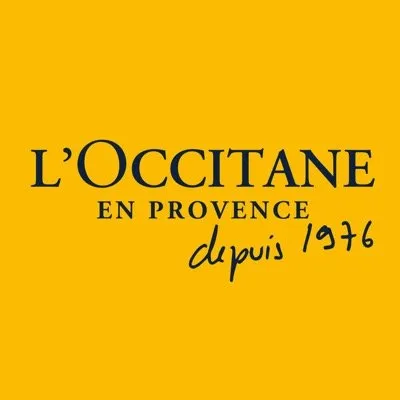
L'Occitane en Provence
Learn more about our scoring →
About L'Occitane en Provence
L'Occitane en Provence represents a distinctive position in the global beauty landscape as a heritage French brand that has built its reputation on traditional Provençal botanicals and artisanal formulation methods. Operating under parent company L'Occitane International, the brand commands significant market presence across skincare, body care, and fragrance categories while maintaining its founding connection to Mediterranean ingredients and regional sourcing traditions.
The brand's sustainability performance reflects both notable achievements and strategic compromises inherent to operating in global markets. Strong environmental initiatives include science-based climate targets with measurable emissions reductions, innovative packaging circularity programs, and comprehensive biodiversity conservation efforts spanning regenerative agriculture and foundation-funded conservation projects. Social responsibility demonstrates through verified living wage commitments and extensive supply chain transparency for botanical ingredients.
However, L'Occitane's sustainability profile reveals significant gaps in animal welfare standards, particularly the loss of cruelty-free certification due to mandatory testing requirements in key markets. Parent company L'Occitane International holds certified benefit corporation status, providing governance framework for balancing commercial objectives with environmental and social impact commitments across the brand portfolio.
The Good Stuff
Where L'Occitane en Provence appears to be making meaningful progress. We cross-referenced these findings with multiple independent sources.
Science-Based Climate Leadership
Achieved predominantly renewable electricity at owned facilities with substantial documented emissions reduction, supported by independently verified science-based targets for comprehensive emissions reduction across operations and supply chain
Verified Supply Chain Transparency
Demonstrates comprehensive traceability to country of origin for priority botanical ingredients with the vast majority of key natural materials certified through recognized organic and responsible sourcing verification programs
Circular Packaging Innovation
Delivered significant virgin plastic reduction with measurable progress toward recyclable packaging goals, achieving substantial recycled content in bottles and aluminum packaging materials
The Reality Check
Areas where the publicly available data gets murky, incomplete, or concerning. We're transparent about the limitations of our analysis.
Animal Testing Compromise
Lost independent cruelty-free certification due to mandatory animal testing requirements for mainland China market access, undermining animal welfare commitments despite selective market policies
Animal Ingredient Sourcing Gaps
Uses cochineal and bee-derived ingredients without sustainability certification verification, creating inconsistency between botanical sourcing standards and animal-derived material oversight
Water Strategy Disclosure Limitations
Water efficiency improvements underway with facility-level reductions documented, but comprehensive water stewardship strategy and public disclosure remain limited compared to climate initiatives
L'Occitane en Provence's
Impact Aura
A visual representation of L'Occitane en Provence's positive impact
across People, Planet and Animals
Each colored area represents the brand's performance in that sustainability category. The size and intensity of each blob corresponds to their score—larger, more vibrant areas indicate stronger performance.
Our Research
Key findings from our comprehensive analysis of L'Occitane en Provence's sustainability performance across People, Planet & Animals impact.
Positive Impact on People
Research Highlights
- Ingredient safety demonstrates the vast majority of key natural ingredients certified through recognized organic and responsible sourcing verification programs
- Labor practices show most employees certified as earning living wages, validated by independent fair wage assessment organizations
- Supply chain transparency achieves comprehensive traceability to country of origin for the majority of priority plant ingredients
- Social impact includes substantial Foundation funding supporting extensive global biodiversity projects and women's empowerment initiatives
- Marketing integrity backed by independent verification through external certification body assessment and responsible advertising policies
Evidence Strength
Strong third-party verification for ingredient safety and labor standards, comprehensive supply chain documentation with some gaps in complete ingredient traceability
Positive Impact on Planet
Research Highlights
- Climate action demonstrates predominantly renewable electricity at owned facilities with substantial Scope 1 emissions reduction achieved
- Biodiversity strategy includes regenerative agriculture pilots across extensive acreage for numerous plant species since implementation
- Packaging innovation shows significant virgin plastic reduction with substantial recycled content in bottles and aluminum packaging achieved
- Environmental targets align with independent science-based methodology for comprehensive Scope 1 and Scope 3 emissions reduction
- Water stewardship includes meaningful production site water use reduction and circular water reuse facility development
Evidence Strength
Excellent documentation for climate and packaging initiatives with third-party verification, comprehensive biodiversity strategy with measurable pilot programs
Positive Impact on Animals
Research Highlights
- Cruelty-free status compromised due to mandatory animal testing requirements for mainland China market access
- Vegan formulations available for select products but brand continues using bee-derived and other animal ingredients
- Wildlife conservation supported through Foundation funding of Mediterranean forest restoration and biodiversity partnerships
- Animal ingredient sourcing includes cochineal and bee-derived materials without sustainability certification verification
- Conservation funding demonstrates substantial commitment to preserving significant plant species diversity through global biodiversity projects
Evidence Strength
Clear documentation of animal testing policy and ingredient practices, strong conservation funding verification with gaps in sustainable sourcing standards
See the Receipts
We don't just make claims—here are the official certifications that prove L'Occitane en Provence's sustainability commitments.
Frequently Asked Questions
Is L'Occitane en Provence sustainable?
Our assessment shows L'Occitane demonstrates strong environmental performance through science-based climate targets, renewable energy adoption, and circular packaging innovation, while maintaining comprehensive supply chain transparency for botanical ingredients. However, sustainability gaps exist in animal welfare standards due to market-driven testing compromises and limited water stewardship disclosure.
Is L'Occitane cruelty-free?
L'Occitane is not currently cruelty-free, having lost independent certification due to mandatory animal testing requirements for mainland China market access. While the brand maintains no-testing policies in other markets, these regional compromises prevent comprehensive cruelty-free status.
What makes L'Occitane environmentally responsible?
Environmental responsibility centers on verified climate action with predominantly renewable electricity and science-based emissions reduction targets, circular packaging innovation achieving significant virgin plastic reduction, and regenerative agriculture programs across extensive acreage for botanical ingredient sourcing.
Does L'Occitane use organic ingredients?
Evidence shows the vast majority of key natural ingredients certified through recognized organic and responsible sourcing programs, with comprehensive traceability to country of origin for priority botanical materials, demonstrating extensive organic ingredient verification across formulations.
Is L'Occitane a clean beauty brand?
L'Occitane demonstrates clean beauty commitment through third-party verified organic ingredient sourcing, biodegradable formula targets with substantial achievement for rinse-off products, and responsible marketing policies backed by independent certification verification.
What certifications does L'Occitane have?
L'Occitane parent company holds certified benefit corporation status providing independent verification of social and environmental performance standards, while ingredient sourcing includes multiple organic and responsible sourcing certifications for botanical materials.
How does L'Occitane support biodiversity?
Biodiversity support includes substantial Foundation funding for extensive global conservation projects preserving significant plant species diversity, regenerative agriculture pilots across considerable acreage, and Mediterranean forest restoration partnerships with measurable conservation outcomes.
Ready to Shop L'Occitane en Provence?
Find L'Occitane en Provence products through our trusted retail partners
The Bottom Line
L'Occitane en Provence demonstrates sophisticated environmental stewardship through verified climate action, circular packaging innovation, and comprehensive botanical ingredient transparency, positioning the brand as a leader in sustainable beauty practices. However, market-driven compromises in animal welfare standards and gaps in water stewardship disclosure reveal the complexity of balancing global commercial objectives with comprehensive sustainability commitments.
Compare Brands
See how L'Occitane en Provence stacks up against similar brands


